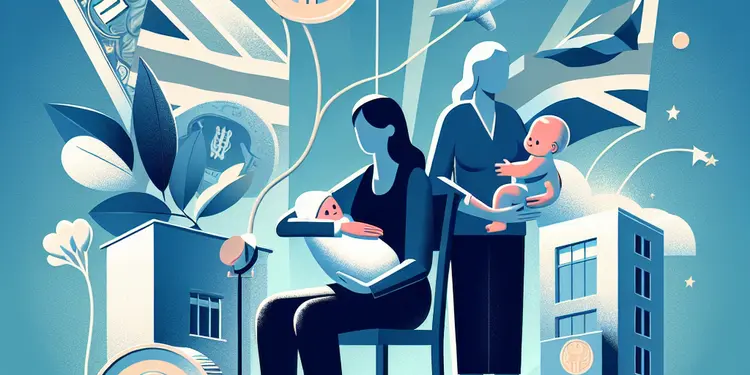
Find Help
More Items From Ergsy search
-
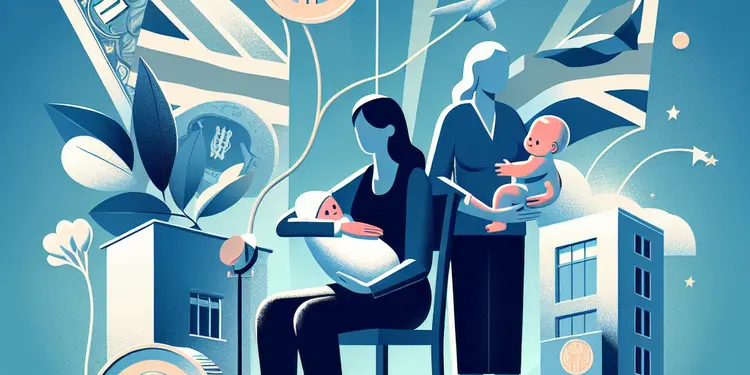
Can postnatal depression recur after treatment?
Relevance: 100%
-
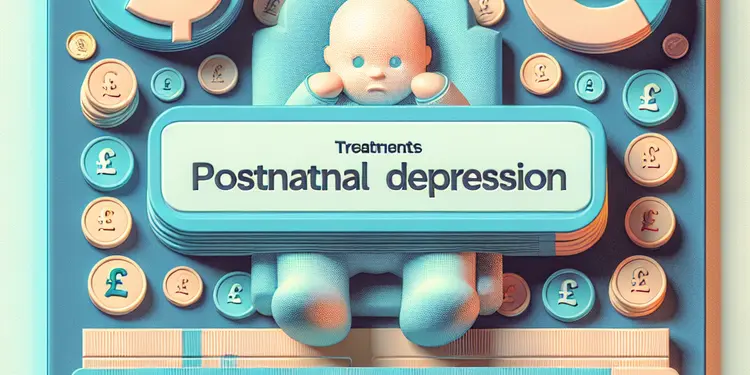
Are there treatments available for postnatal depression?
Relevance: 79%
-
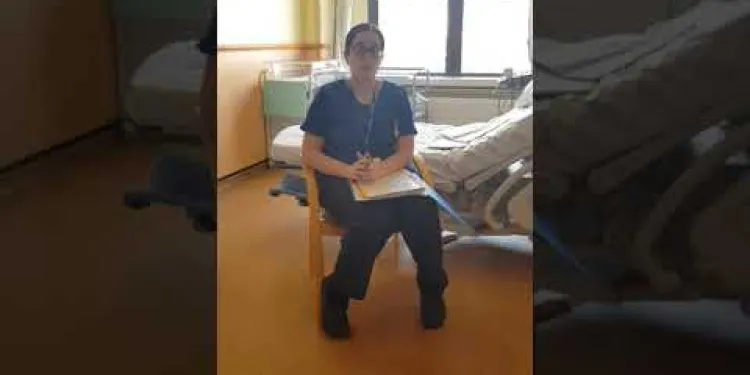
Postnatal Depression
Relevance: 75%
-
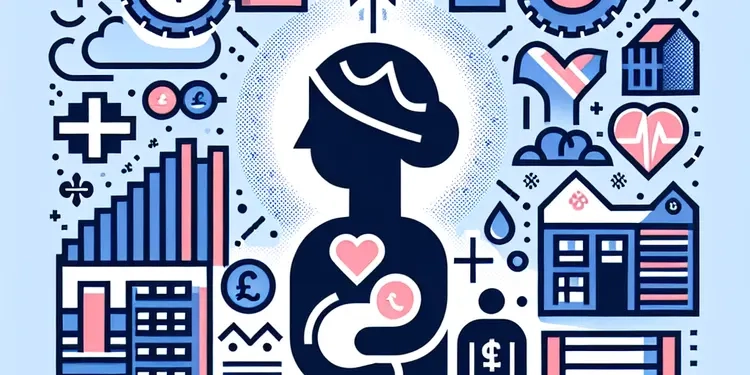
What is postnatal depression?
Relevance: 75%
-

Is postnatal depression a long-term condition?
Relevance: 72%
-

What causes postnatal depression?
Relevance: 67%
-
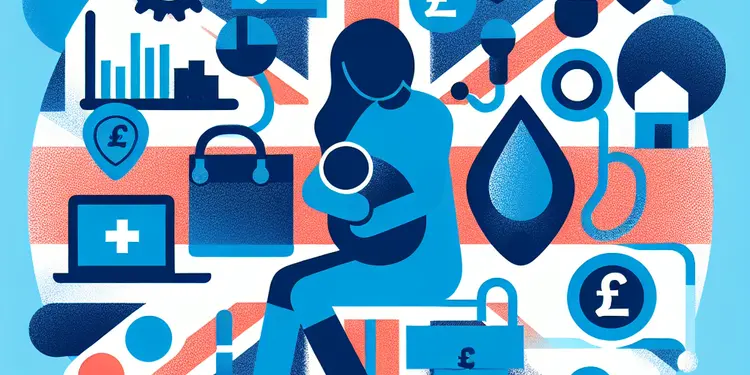
How is postnatal depression diagnosed?
Relevance: 67%
-

Postnatal Depression - Leanne's Story
Relevance: 66%
-
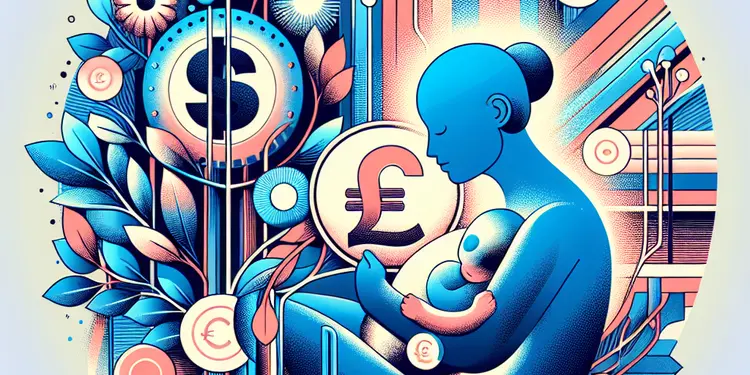
What are the symptoms of postnatal depression?
Relevance: 66%
-
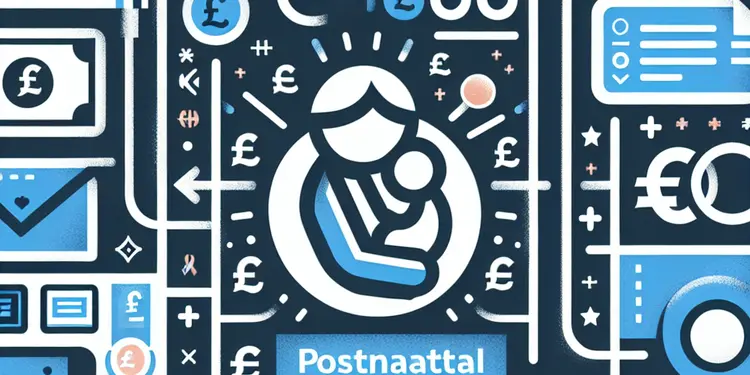
Is postnatal depression preventable?
Relevance: 65%
-
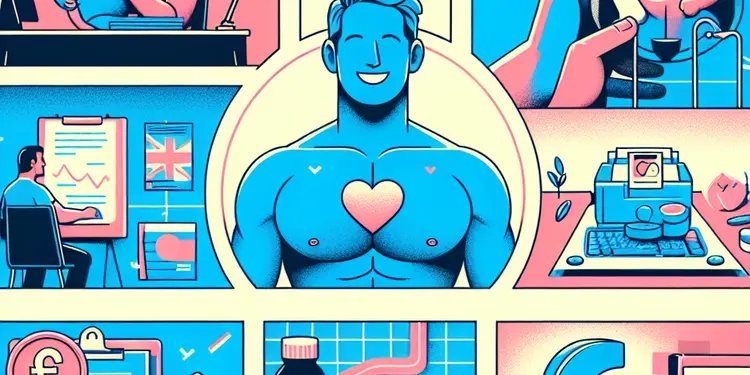
Is medication necessary for treating postnatal depression?
Relevance: 65%
-

Can fathers experience postnatal depression?
Relevance: 63%
-
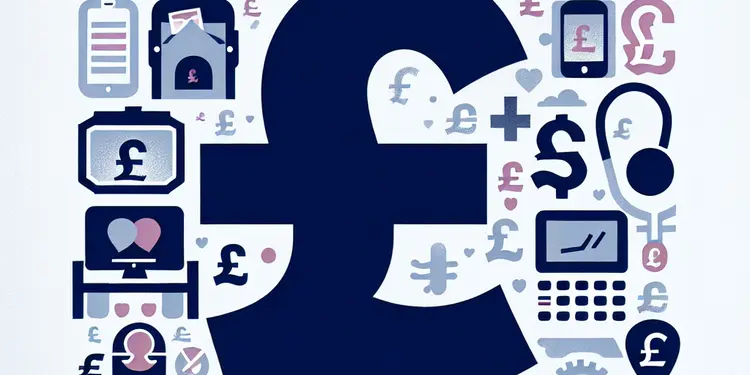
What should I do if I suspect I have postnatal depression?
Relevance: 62%
-
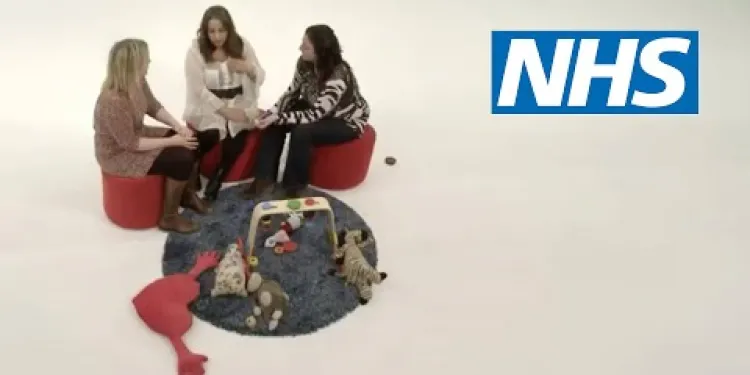
How do I know if I have postnatal depression? | NHS
Relevance: 62%
-
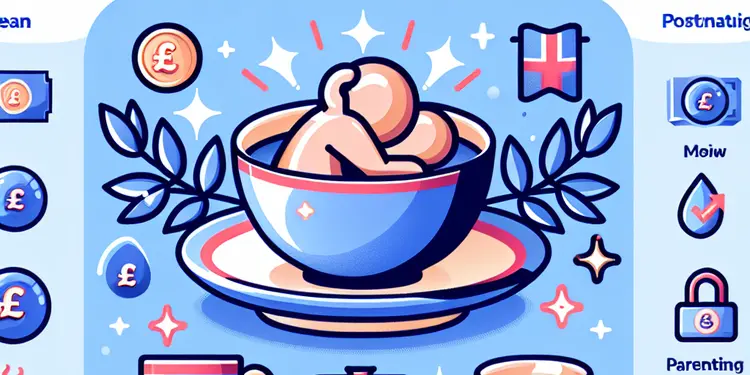
Are there support groups for postnatal depression?
Relevance: 62%
-
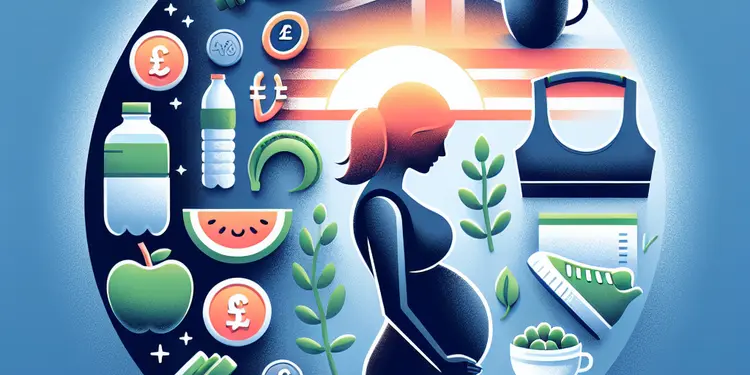
Can lifestyle changes help with postnatal depression?
Relevance: 61%
-

Should someone with postnatal depression seek professional help?
Relevance: 61%
-
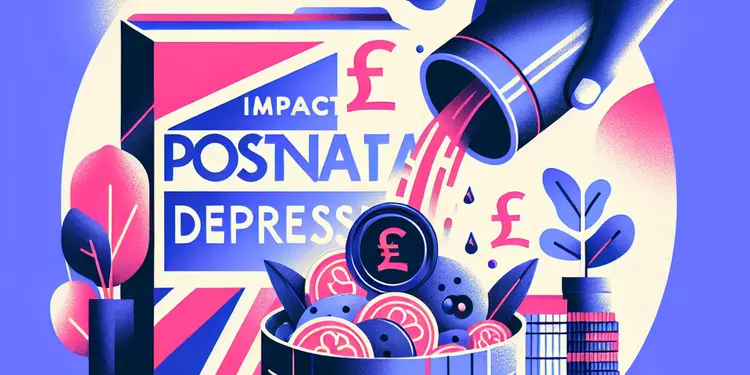
Can diet impact postnatal depression?
Relevance: 61%
-
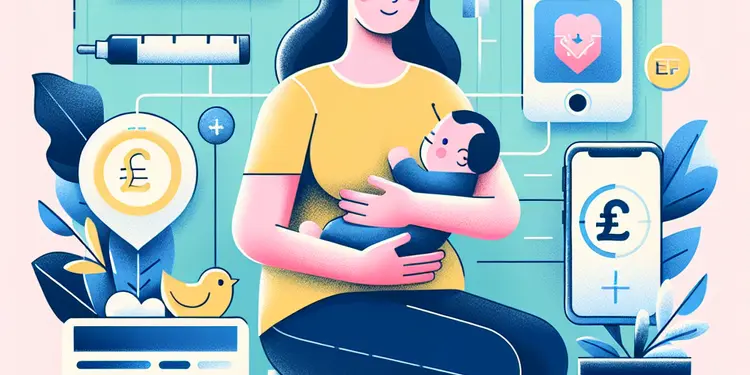
How is postnatal depression different from the 'baby blues'?
Relevance: 61%
-

Can postnatal depression affect subsequent pregnancies?
Relevance: 60%
-
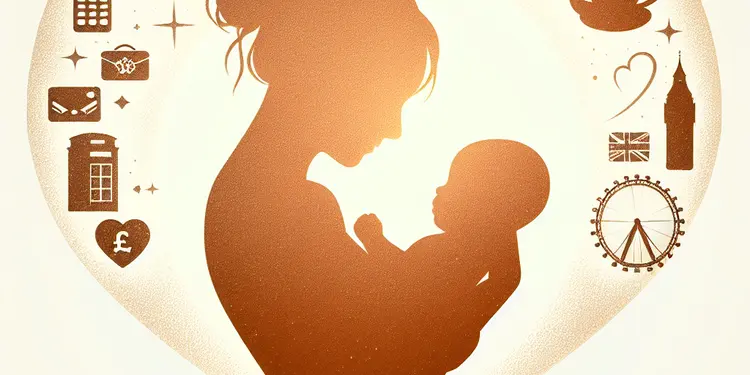
How does postnatal depression affect bonding with the baby?
Relevance: 60%
-
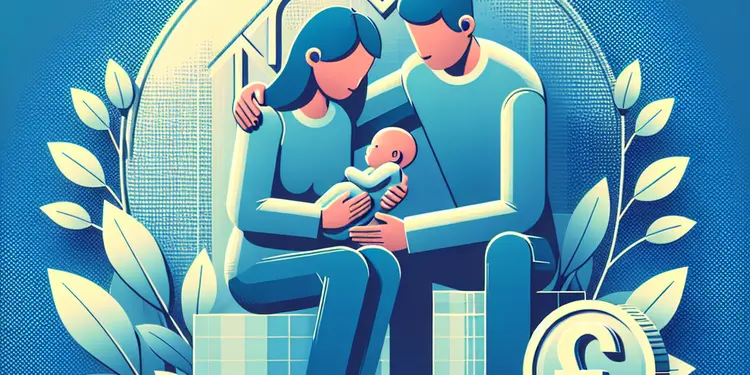
How can family members support someone with postnatal depression?
Relevance: 54%
-
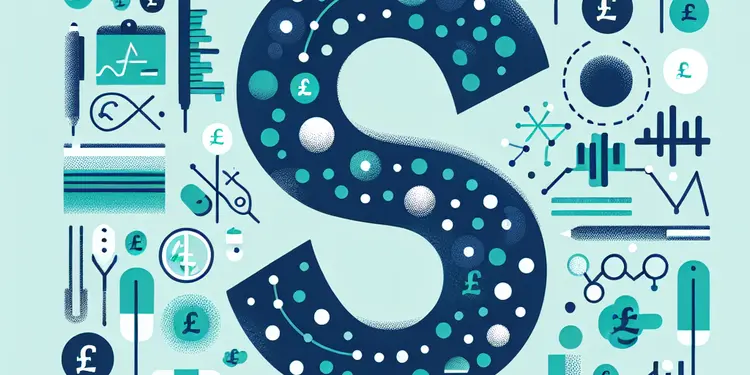
Can hypotony recur after treatment?
Relevance: 45%
-
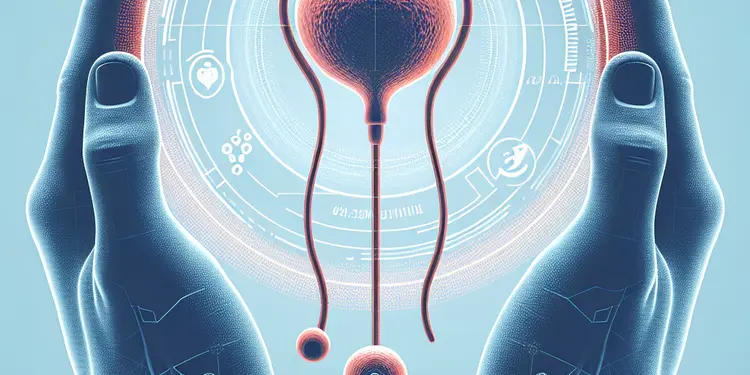
Can BPH recur after treatment?
Relevance: 43%
-
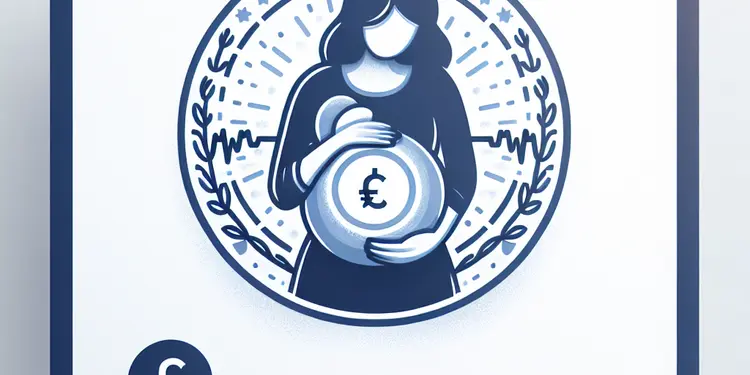
How soon after childbirth can postnatal depression occur?
Relevance: 41%
-

Can Carpal Tunnel Syndrome recur after treatment?
Relevance: 40%
-

Can testicular cancer recur after treatment?
Relevance: 39%
-

Can prostate cancer recur after treatment?
Relevance: 38%
-
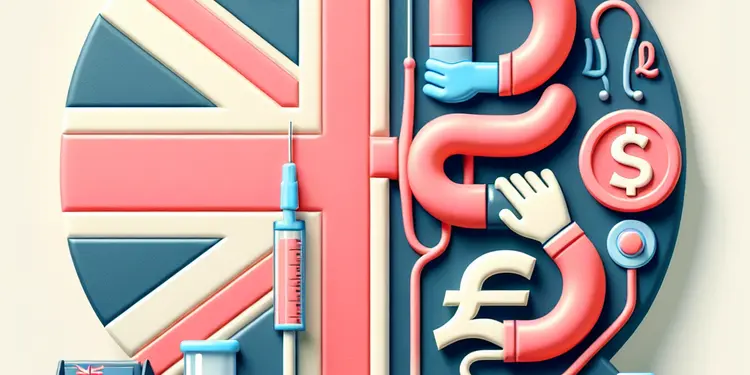
Can flesh-eating disease recur after treatment?
Relevance: 33%
-

Treating anxiety and depression - www.slam.nhs.uk
Relevance: 31%
-

What happens if I receive compensation for an issue, but it recurs?
Relevance: 30%
-

Clinical depression: Lawrence's story | NHS
Relevance: 29%
-

Can physical symptoms be linked to relationship-induced depression?
Relevance: 27%
-
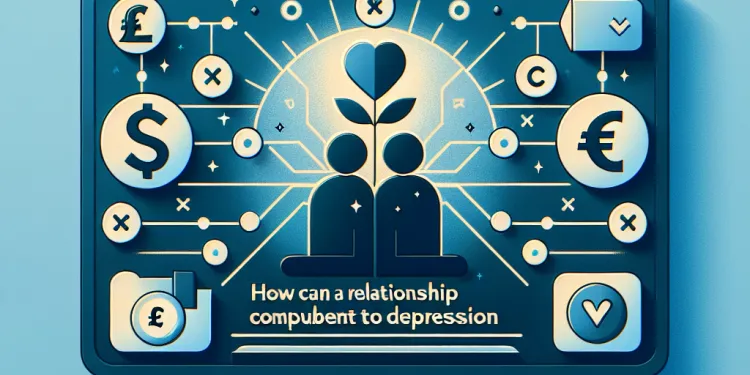
How can a relationship contribute to depression?
Relevance: 27%
-
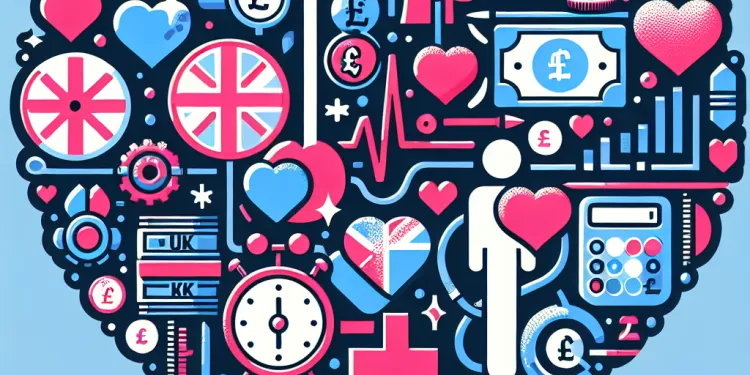
What are the signs that my relationship is making me depressed?
Relevance: 26%
-
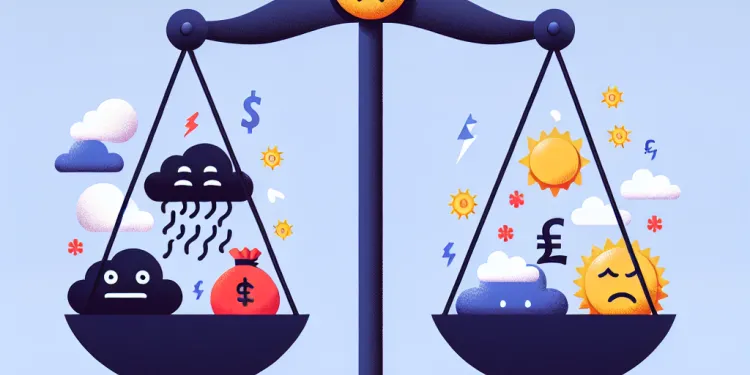
What role do unhealthy dynamics play in causing depression?
Relevance: 26%
-

I couldn't celebrate Hibs beating Hearts because I was that depressed
Relevance: 25%
-
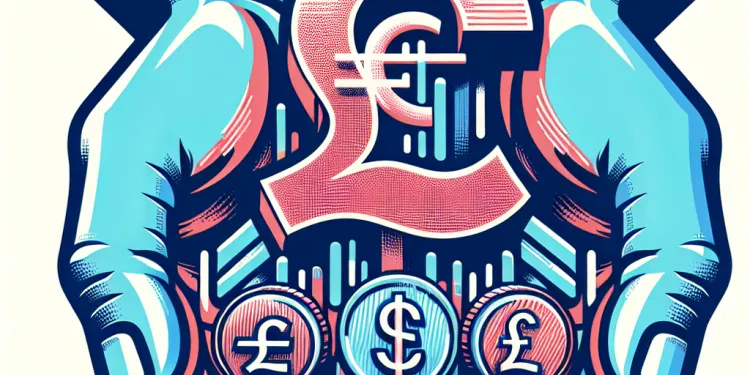
Are there any self-care strategies to cope with relationship-induced depression?
Relevance: 25%
-
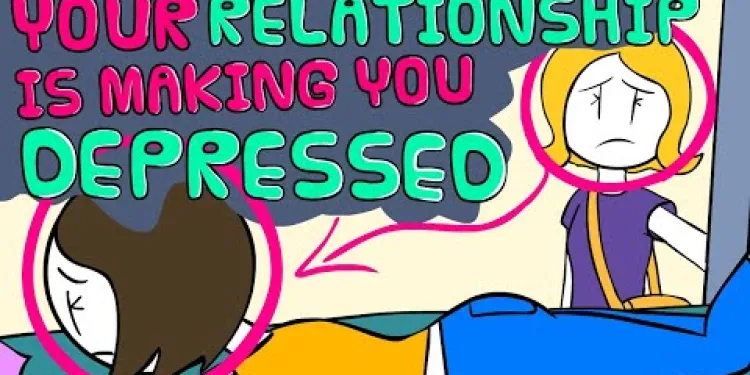
7 Signs Your Relationship is Making You Depressed
Relevance: 24%
-

Can Marburg virus disease recur after recovery?
Relevance: 24%
Understanding Postnatal Depression
Postnatal depression, a type of depression that occurs after childbirth, is a serious mental health condition that affects many new parents. It can lead to feelings of sadness, anxiety, and exhaustion, making it challenging for new parents to care for themselves and their babies. Although treatment options, including therapy and medication, can be effective in managing symptoms, there is a concern about the potential recurrence of postnatal depression after treatment.
Can Postnatal Depression Recur?
Yes, postnatal depression can recur after successful treatment. Research suggests that individuals who have experienced postnatal depression once are at a higher risk of experiencing it again in subsequent pregnancies or after significant life events. The recurrence is not guaranteed, but being aware of the possibility allows for early intervention and management if symptoms reappear.
Factors Contributing to Recurrence
Several factors can contribute to the recurrence of postnatal depression. Biological factors, such as hormonal changes, can play a significant role, particularly for women. Additionally, personal history of depression, family history of mental health issues, and lack of social support increase the likelihood of recurrence. Psychosocial stressors, like relationship problems, financial difficulties, or lack of support, can also aggravate the condition.
Recognising Symptoms of Recurrence
Recognising the symptoms of postnatal depression early is crucial in preventing a full-blown relapse. Common symptoms include persistent sadness, loss of interest or pleasure in activities, lack of energy, trouble sleeping or sleeping too much, feelings of guilt or worthlessness, and difficulty concentrating. If these symptoms recur or worsen, it is vital to seek professional help promptly.
Preventative Measures
There are several steps that individuals can take to reduce the risk of postnatal depression recurring. Maintaining a healthy lifestyle, including regular physical activity, balanced nutrition, and adequate sleep, can support mental health. Establishing a strong support network of family and friends can also provide emotional assistance during challenging times. Continuous monitoring and regular check-ins with healthcare providers can help in managing the condition effectively.
Treatment Options for Recurrence
If postnatal depression does recur, seeking treatment quickly is essential. Treatment options generally include a combination of therapy, such as cognitive-behavioral therapy or interpersonal therapy, and medication, if necessary. Doctors may recommend different strategies based on the individual's history and specific needs. Support groups or parenting programs may also be beneficial in reducing feelings of isolation and building coping strategies.
The Importance of Awareness and Support
Awareness of the potential for recurrence of postnatal depression is essential for both new parents and their support networks. Early detection and intervention can greatly improve outcomes. Encouraging open and honest communication, reducing stigma around mental health issues, and ensuring access to appropriate resources and support services are vital steps in supporting the mental well-being of those experiencing postnatal depression.
Understanding Postnatal Depression
Postnatal depression is a type of sadness that happens after a baby is born. It is a serious problem that affects many new parents. It can make parents feel very sad, worried, and very tired. This makes it hard for them to look after themselves and their baby. There are ways to help, like talking to a therapist or taking medicine. But some people worry that it might come back after getting better.
Can Postnatal Depression Come Back?
Yes, postnatal depression can come back after getting better. If someone has had it once, they might get it again in future pregnancies or during big life changes. It might not happen to everyone, but knowing it can happen means parents can get help early if they start feeling the symptoms again.
Why Might It Come Back?
There are different reasons why postnatal depression might come back. Changes in hormones can be a big reason, especially for women. If someone had depression before, or if their family has a history of mental health problems, the chances are higher. Not having enough support from family and friends can also make it worse. Problems like fights with loved ones or money worries can also make it happen again.
Recognizing When It Comes Back
It's important to notice early signs of postnatal depression. Some signs are feeling sad for a long time, not enjoying things you used to like, feeling very tired, having trouble sleeping, feeling guilty or like you are not good enough, and finding it hard to focus. If these signs come back or get worse, it's important to see a doctor or therapist.
How to Stop It Coming Back
There are things people can do to help stop postnatal depression from coming back. Staying healthy by exercising, eating well, and getting enough sleep can help. Having family and friends to talk to makes things easier. Regular check-ups with a doctor can also help manage the problem.
What to Do If It Comes Back
If postnatal depression does come back, it's important to get help quickly. This might mean talking to a therapist or taking medicine. Doctors will suggest the best treatment based on what the person needs. Joining a support group or a parenting program can also help by making them feel less alone and teaching ways to cope.
The Importance of Knowing and Getting Help
Knowing that postnatal depression can come back is important for new parents and their families. Finding it early and getting help can make things much better. It's important to talk openly about feelings, support mental health, and make sure there are good resources and support available for those who need it.
Frequently Asked Questions
Can postnatal depression recur after treatment?
Yes, it is possible for postnatal depression to recur after treatment, especially if the underlying risk factors and triggers are not addressed.
What are the chances of postnatal depression recurring?
The likelihood of recurrence can vary, but women who have previously experienced postnatal depression may have a higher risk of it occurring again after subsequent pregnancies.
How soon after treatment can postnatal depression recur?
Recurrence can happen at any time, particularly in future pregnancies or stressful life changes, but it may also occur after treatment due to unresolved issues.
What factors contribute to the recurrence of postnatal depression?
Factors such as a history of depression, lack of social support, stressful life events, and hormonal changes might contribute to the recurrence of postnatal depression.
How can one prevent the recurrence of postnatal depression?
Preventive strategies include ongoing therapy, strong support networks, stress management techniques, and continued medical care after the initial episode.
Is therapy effective in preventing the recurrence of postnatal depression?
Yes, therapy, particularly cognitive behavioral therapy (CBT) and interpersonal therapy, can be effective in preventing recurrence by helping individuals manage triggers and develop coping strategies.
Can medication help prevent the recurrence of postnatal depression?
In some cases, medication may be recommended to prevent recurrence, especially if there is a history of severe episodes, but this should be determined by a healthcare provider.
Does each subsequent pregnancy increase the risk of postnatal depression recurrence?
While each pregnancy is different, women with a history of postnatal depression generally have a higher risk of recurrence, making close monitoring important.
Can lifestyle changes reduce the risk of postnatal depression recurrence?
Healthy lifestyle changes such as regular exercise, balanced diet, adequate sleep, and stress reduction can contribute to reducing the risk of recurrence.
Should individuals with a history of postnatal depression avoid future pregnancies?
Future pregnancies do not necessarily need to be avoided, but it is important to plan carefully and seek support from healthcare providers to manage risks.
How does hormonal treatment affect postnatal depression recurrence?
Hormonal treatments may be used to help manage symptoms in some cases, but their effectiveness and risks should be assessed by a healthcare provider.
Can early intervention reduce the risk of recurrence?
Early intervention, including therapy and support, can be crucial in managing symptoms promptly and reducing the risk of recurrence.
Can breastfeeding affect the recurrence of postnatal depression?
Breastfeeding may have both protective and stress-inducing effects, and its impact on recurrence can vary, highlighting the importance of personalized care.
How important is social support in preventing recurrence?
Social support plays a significant role in preventing recurrence by providing emotional assistance and practical help in managing the demands of motherhood.
Is self-care important for reducing the risk of postnatal depression recurrence?
Yes, self-care practices such as maintaining personal interests, resting, and taking time for oneself are essential in reducing stress and potentially preventing recurrence.
Can recreational habits and hobbies impact the recurrence of postnatal depression?
Engagement in recreational activities and hobbies can provide emotional benefits and stress relief, potentially lowering the risk of recurrence.
How does prior mental health history affect postnatal depression recurrence?
A previous history of mental health conditions can increase the likelihood of postnatal depression recurrence, making mental health support essential.
Can group therapy be beneficial in preventing recurrence?
Yes, group therapy can provide peer support and shared experiences, which can be valuable in preventing recurrence and providing coping strategies.
Is it possible to fully recover from postnatal depression without recurrence?
Full recovery is possible, though some individuals may experience recurrence. Continued attention to mental health and coping strategies is key to maintaining wellness.
What role does stress management play in preventing the recurrence of postnatal depression?
Effective stress management techniques such as mindfulness, relaxation exercises, and therapy can significantly help reduce the risk of postnatal depression recurrence.
Can postnatal depression come back after getting help?
Postnatal depression is when someone feels very sad after having a baby. It is okay to ask for help if you feel this way. Sometimes, even after getting better, the sad feelings can come back. This is called "recurrence."
If you start to feel sad again, it is important to talk to someone, like a doctor or therapist. They can help you feel better.
It can be helpful to:
- Talk to friends and family about how you feel
- Join a support group with other parents
- Take care of yourself by eating well and getting enough sleep
- Write in a diary about your feelings
Remember, you are not alone, and there are people who want to help you feel happy again.
Yes, postnatal depression can come back after it has been treated. This can happen if the causes of the depression are not looked after.
Will postnatal depression happen again?
If someone had postnatal depression before, it might come back again. It's like having a cold; sometimes it returns. Talking to a doctor or a helper can make you feel better and give you tips to stay strong.
Women who had postnatal depression before might get it again after having another baby. They have a higher chance of it happening.
When can sadness after having a baby happen again?
The problem can come back any time. It might happen if you get pregnant again, if your life changes in a big way, or if you have not finished getting help.
Here are some things that might help you:
- Talk to a friend or family member you trust.
- Keep going to therapy or counseling sessions.
- Try doing some relaxing activities like drawing or listening to music.
Why does postnatal depression come back?
Here are some reasons why postnatal depression might come back:
- If you have had it before, it might happen again.
- Big changes in your life can make it come back.
- Not having help from friends or family can make it worse.
- Being very stressed or sad can also be a reason.
If you or someone else feels this way, it is good to talk to a doctor or therapist. They can help. There are also apps and websites that can support you. It is important to ask for help when you need it.
Postnatal depression can happen again because of a few reasons. These can include:
- Having depression before.
- Not having people around to help and support you.
- Going through lots of stress or big life changes.
- Changes in your body's hormones.
If you are feeling worried, talking to someone you trust can help. There are also apps and hotlines that can support you. Remember, you're not alone.
How can you stop postnatal depression from coming back?
Postnatal depression is feeling sad after having a baby. Here are some ways to feel better and stop it from happening again:
- Talk to someone: Share your feelings with a friend, family member, or doctor. They can help you.
- Rest: Try to sleep when your baby sleeps. Rest is important.
- Eat healthy: Good food helps your body and mind be strong.
- Exercise: Walking or doing some easy exercises can make you feel better.
- Join a group: Some groups have other people who feel the same way. Talking to them can help.
- Ask for help: It is okay to ask someone to help with the baby or chores. You do not have to do everything alone.
- See a doctor or counselor: They can give you advice and support.
Remember, you are not alone, and help is available.
There are some ways to stay well and feel better:
- Keep talking to someone who can help, like a counselor or therapist.
- Have family and friends around who care about you.
- Learn ways to stay calm and handle stress, like deep breathing or relaxing activities.
- Keep seeing a doctor or nurse even after you feel better, to make sure you stay well.
Can therapy help stop postnatal depression from coming back?
Yes, talking with a therapist can help stop problems from coming back. Two kinds of therapy can help a lot. They are called cognitive behavioral therapy (CBT) and interpersonal therapy. These therapies teach people how to handle problems and find ways to feel better.
Can medicine stop postnatal depression from coming back?
Postnatal depression is when new moms feel very sad after having a baby.
Medicine can help some moms feel better.
Doctors might use medicine to stop the sadness from coming back.
If you or someone you know has postnatal depression, talk to a doctor. They can help.
It might also help to talk to friends and family. You don’t have to do it alone.
Sometimes, medicine can help stop problems from coming back. This is very important if someone has had big problems before. A doctor will decide if medicine is needed.
Do you get postnatal depression more easily after each new baby?
Every pregnancy is special and different. But if a woman has felt very sad after having a baby before, she might feel the same way again. It is important for doctors and helpers to watch closely and give extra support.
Can changing how you live help stop feeling sad after having a baby again?
Living a healthy life can help you stay well. Here are some things you can do:
- Exercise often. This means moving your body to stay fit and strong.
- Eat healthy foods. This means eating fruits, vegetables, and other good foods.
- Get enough sleep. This means resting your body each night so you feel good during the day.
- Stay calm and relaxed. Try to find things that help you feel happy and not worried.
Doing these things can help keep you healthy and lower the chance of getting sick again.
Is it safe for people who had postnatal depression to have more babies?
If you want to have another baby in the future, you don't have to avoid it. But it's important to think ahead and talk to a doctor or nurse. They can help you stay healthy and safe.
How does hormone treatment affect feeling sad after having a baby?
Sometimes doctors use special medicines to help with symptoms. These are called hormonal treatments. A doctor needs to check if they work well and if they are safe for you. It's important to talk to your doctor about it.
Can getting help early stop the problem from coming back?
Getting help early, like seeing a therapist or getting support, is very important. It can help with symptoms quickly and make it less likely they will come back.
Can breastfeeding change if postnatal depression comes back?
Some mums feel sad or worried after having a baby. This is called postnatal depression. We want to know if feeding your baby with breast milk can change if these sad or worried feelings come back.
If you are worried or need help, talk to a doctor or nurse. They can help you feel better.
Breastfeeding can help and sometimes make stress. It can change how often things happen again. This is why it's important for each person to get care that is just right for them.
How does having support from friends and family help you stay well?
Having people to help you is very important. It can stop problems from coming back. They give you feelings of love and listen to you. They also help with looking after your baby and do other jobs you need.
Is taking care of yourself important to stop postnatal depression from coming back?
Yes, looking after yourself is very important. Doing things you like, taking breaks, and having time just for you can help you feel less stressed. This can also stop stress from coming back.
Can Things You Do for Fun Affect Feeling Sad After Having a Baby?
Can what you do for fun make you feel sad again after having a baby?
If you sometimes feel very sad after your baby is born, what you do for fun might change how you feel.
Here are some tips to feel better:
- Talk to someone you trust if you feel sad.
- Do activities that make you happy, like singing or drawing.
- Try to get a little exercise, like walking in the park.
- Use apps with calming music or happy stories to feel better.
Remember, it's okay to ask for help from family or friends if you need it.
Doing fun activities and hobbies can help you feel happy and calm. This might help keep stress away and make you feel better.
How does having mental health problems before affect getting sad again after having a baby?
Having felt sad, anxious, or had mental health problems before can make it more likely to feel sad again after having a baby.
Here are some ideas to help:
- Talk to a doctor or someone you trust about your feelings.
- Join a support group for new parents.
- Try activities that make you feel calm, like deep breathing or listening to music.
If you had mental health problems in the past, you might feel sad after having a baby again. It is important to get help for your feelings.
Can group therapy help stop problems from coming back?
Yes, group therapy can help. You meet other people who understand, and you can share stories. This can stop problems from coming back and teach you ways to feel better.
Can you get better from postnatal depression and not have it come back?
It is possible to get better completely, but some people may feel unwell again. It is important to keep looking after your mental health and learn ways to cope. This can help you stay well.
How can handling stress help stop postnatal depression from coming back?
After having a baby, some moms feel very sad. This is called postnatal depression. It can come back if not careful.
Learning to manage stress can help. When you feel worried or upset, try these ideas:
- Talk to someone: Share your feelings with a friend or family member.
- Relax: Do things like deep breathing or listening to music.
- Take breaks: Have some quiet time for yourself every day.
- Ask for help: It is okay to ask for help with the baby or housework.
If you feel sad for a long time, talk to a doctor. They can help you feel better.
There are ways to feel less stressed. Things like mindfulness, relaxing exercises, and talking to a therapist can help. These can make it less likely for someone to feel sad again after having a baby.
Useful Links
This website offers general information and is not a substitute for professional advice.
Always seek guidance from qualified professionals.
If you have any medical concerns or need urgent help, contact a healthcare professional or emergency services immediately.
Some of this content was generated with AI assistance. We’ve done our best to keep it accurate, helpful, and human-friendly.
- Ergsy carfully checks the information in the videos we provide here.
- Videos shown by Youtube after a video has completed, have NOT been reviewed by ERGSY.
- To view, click the arrow in centre of video.
- Most of the videos you find here will have subtitles and/or closed captions available.
- You may need to turn these on, and choose your preferred language.
- Go to the video you'd like to watch.
- If closed captions (CC) are available, settings will be visible on the bottom right of the video player.
- To turn on Captions, click settings .
- To turn off Captions, click settings again.
More Items From Ergsy search
-

Can postnatal depression recur after treatment?
Relevance: 100%
-

Are there treatments available for postnatal depression?
Relevance: 79%
-

Postnatal Depression
Relevance: 75%
-

What is postnatal depression?
Relevance: 75%
-

Is postnatal depression a long-term condition?
Relevance: 72%
-

What causes postnatal depression?
Relevance: 67%
-

How is postnatal depression diagnosed?
Relevance: 67%
-

Postnatal Depression - Leanne's Story
Relevance: 66%
-

What are the symptoms of postnatal depression?
Relevance: 66%
-

Is postnatal depression preventable?
Relevance: 65%
-

Is medication necessary for treating postnatal depression?
Relevance: 65%
-

Can fathers experience postnatal depression?
Relevance: 63%
-

What should I do if I suspect I have postnatal depression?
Relevance: 62%
-

How do I know if I have postnatal depression? | NHS
Relevance: 62%
-

Are there support groups for postnatal depression?
Relevance: 62%
-

Can lifestyle changes help with postnatal depression?
Relevance: 61%
-

Should someone with postnatal depression seek professional help?
Relevance: 61%
-

Can diet impact postnatal depression?
Relevance: 61%
-

How is postnatal depression different from the 'baby blues'?
Relevance: 61%
-

Can postnatal depression affect subsequent pregnancies?
Relevance: 60%
-

How does postnatal depression affect bonding with the baby?
Relevance: 60%
-

How can family members support someone with postnatal depression?
Relevance: 54%
-

Can hypotony recur after treatment?
Relevance: 45%
-

Can BPH recur after treatment?
Relevance: 43%
-

How soon after childbirth can postnatal depression occur?
Relevance: 41%
-

Can Carpal Tunnel Syndrome recur after treatment?
Relevance: 40%
-

Can testicular cancer recur after treatment?
Relevance: 39%
-

Can prostate cancer recur after treatment?
Relevance: 38%
-

Can flesh-eating disease recur after treatment?
Relevance: 33%
-

Treating anxiety and depression - www.slam.nhs.uk
Relevance: 31%
-

What happens if I receive compensation for an issue, but it recurs?
Relevance: 30%
-

Clinical depression: Lawrence's story | NHS
Relevance: 29%
-

Can physical symptoms be linked to relationship-induced depression?
Relevance: 27%
-

How can a relationship contribute to depression?
Relevance: 27%
-

What are the signs that my relationship is making me depressed?
Relevance: 26%
-

What role do unhealthy dynamics play in causing depression?
Relevance: 26%
-

I couldn't celebrate Hibs beating Hearts because I was that depressed
Relevance: 25%
-

Are there any self-care strategies to cope with relationship-induced depression?
Relevance: 25%
-

7 Signs Your Relationship is Making You Depressed
Relevance: 24%
-

Can Marburg virus disease recur after recovery?
Relevance: 24%


